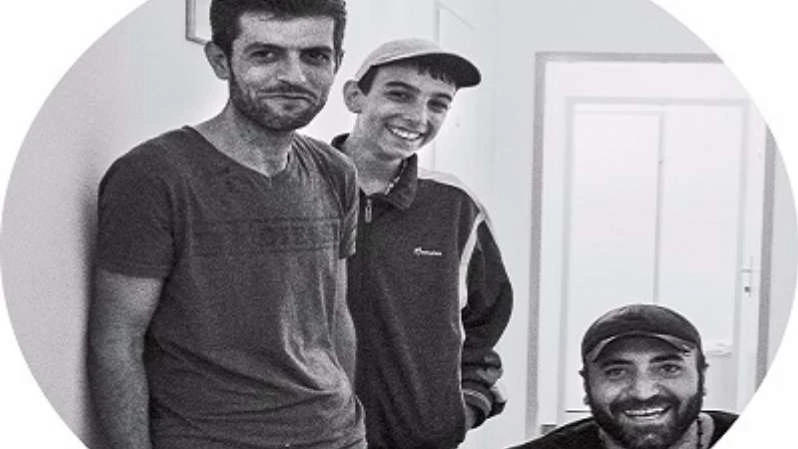After hanging up, he rang his traveling companion, Mohammed: “Get your family ready to go,” he instructed. “We’re leaving.”
Along with hundreds of other Syrians, the two men had been stuck for nearly a week in Bodrum, a place full of docked yachts and capri-clad tourists. Toddler Alan Kurdi had recently washed up on this resort town’s shores. Images of the boy’s limp body, dressed in a drenched red T-shirt and jeans, had gripped the world, even if Muhanid didn’t quite understand why; Syrian children had been dying for years, with little reaction. Nevertheless, global outrage had forced the local police to crack down on illegal departures.
Muhanid and Mohammed, both pastry chefs and friendly rivals back in Latakia, had their sights set on Sweden, a destination they’d selected on the meager criterion that a friend had said it was a “nice” place to raise a family. On his phone, Muhanid had downloaded a rudimentary map from a Facebook page for emigrating Syrians. Titled “The Road to Germany: 00,” the chart began in Turkey — it listed Izmir as the starting point, but Bodrum could serve the same purpose — and it would become the two men’s guiding light.
Although Muhanid had set out unattached, that changed when he met 14-year-old Ihsan in Bodrum. Ihsan’s parents had entrusted a friend to take the Syrian teenager to his uncle in Germany, but the chaperone had abandoned him in Turkey. Muhanid couldn’t do the same to the lanky, shy youth, who was always smiling and wanted to be a petrochemical engineer one day. Muhanid called the boy’s parents, who offered to reimburse him 2,000 euros for his troubles, and assured him he would reunite Ihsan with his family.
Every Syrian in Bodrum had different motives for leaving home. Muhanid had already spent some 30 days in a Syrian prison in 2013 — mistaken for another man the authorities were after — and was unable to forget the daily beatings he had endured. He also feared being forced to kill in the name of the regime that had imprisoned him: Like other able-bodied, relatively young men, the amateur weightlifter was under contstant threat of being conscripted by Assad forces, nabbed off the street and stuffed into a car, only to find himself hours later at the front, with a Russian gun in his hand.
Likewise, Mohammed understood the risks of staying in Syria. In 2012, he had settled in Latakia, after his hometown, Idlib, was overrun by opposition forces and his house destroyed by regime attacks. He opened a pastry shop but soon discovered that his national ID card, from Idlib, meant he was often held at checkpoints. In fact, he needed permits to travel even the shortest distances. He was treated, he felt, as if he weren’t even Syrian.
But he was most wary of his sectarian neighborhoods, who routinely threatened Mohammed, his wife, Sawsan, and their three children, all of whom are Sunni. (Latakia had a large pro-regime Alawite population). In one instance, two men tried to kick in Mohammed’s door. He called the police, but by the time they arrived, the three men were in the midst of a fist fight. The officers told them they could either spend the night in jail or apologize to one another — and seal it with a kiss to the cheek, the Syrian version of a handshake. As Mohammed placed his lips on the faces of the men, he knew that he couldn’t bank the futures of his kids — Sedra, 7; Ali, 5; and Brahim, 3 — on a mere gesture.
He told Muhanid what happened, and over the next year, they plotted their escape, relying on word of mouth and online tips. They learned that they’d have to register their passports with authorities along the way. But at all costs they were to avoid getting fingerprinted — a mark, as they understood it, that would officially kick-start a refugee’s asylum process until they made it to Sweden.
Muhanid sold his belongings, collected ,000, and condensed his life into one backpack; his cash and important documents, he kept with him inside a one-shouldered bag. Mohammed and Sawsan saved ,000 by selling their car and some gold jewelry. Hoping to return some day, they asked a relative to mind their apartment. Then, they told their children that they were going on a family vacation to Turkey.



التعليقات (0)